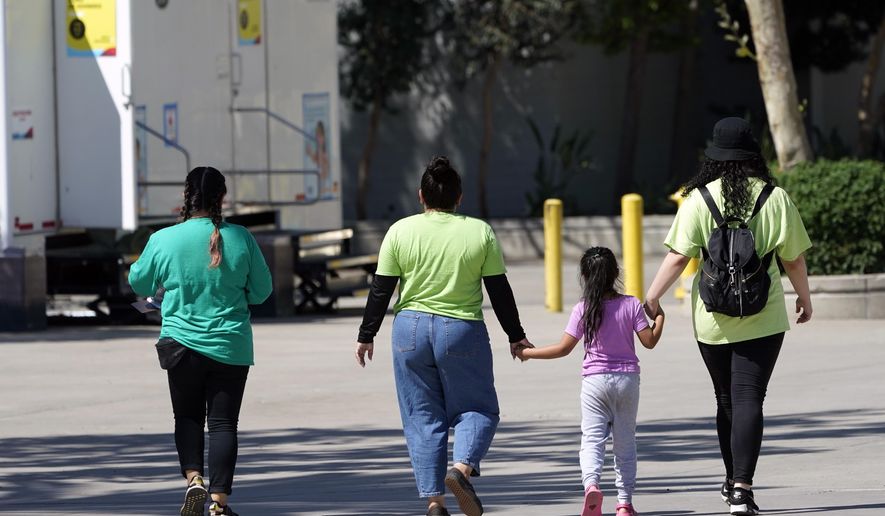Border Patrol agents did not mistreat a pregnant migrant who began to give birth immediately after being caught, the agency’s inspector general said Friday, shooting down a story that then-Sen. Kamala Harris seized on during the presidential campaign.
Ms. Harris, echoing a complaint filed by the woman and her husband, said the Guatemalan mother was forced to give birth standing up, “delivering her baby into her pants,” because agents wouldn’t help. Ms. Harris called it “utterly despicable” and demanded the inspector general’s investigate the incident.
But investigators said they “did not substantiate” the reports of mistreatment during the Feb. 16, 2020, incident.
The inspector general’s report doesn’t specifically address claims the woman delivered her child into her own pants, but gives a general exoneration of agents, saying they followed procedures.
“In reviewing the circumstances surrounding the childbirth at the Chula Vista station, we found Border Patrol provided adequate medical assistance to the mother and her newborn and complied with applicable policies,” the inspector general said.
But investigators said the baby — by birth a U.S. citizen — was held overnight at a Border Patrol facility, sleeping on a hard cot with its mother.
The audit said that’s not the first time a newborn has been held in custody for what appears to be too long. The inspector general said agents need to find ways to prevent that from happening.
“A BP station is no place for an infant,” one supervisor wrote in the wake of the Chula Vista birth.
Yet just months before, another mother and newborn were held three nights, the inspector general found.
Overall, the audit said it’s impossible to know how often migrants give birth in custody at the border, because Customs and Border Protection doesn’t comprehensively track such incidents.
But the audit found dozens of instances from billing records. In about one-third of the cases, the baby and mother were held overnight.
CBP offered explanations. In the case of one family held for three days, the mother had claimed she feared being sent back to Mexico, and it took three days to decide on her claim.
In another case, the mother herself was a juvenile, creating more complications because, under the law, space had to be cleared for her at a Health and Human Services facility.
In five instances, though, the audit said overnight detention could have been avoided if the agency had expedited its processes.
In the February 2020 birth, CBP said the woman delivered so quickly that agents hadn’t been able to process her. Once the mother and child were released from the hospital, they had to be brought back to the Border Patrol station for processing, and that took until the next morning.
The inspector general said the woman was arrested at 2:30 p.m. and arrived in custody at the Border Patrol station at 3 p.m. A minute later she was directed to an area for processing, and at 3:09 she began delivering her baby, according to video footage.
The baby was born at 3:17 and medics reached her at 3:19. The mother and child were taken to a local hospital where they stayed two nights, being released at 6:10 p.m. on Feb. 18. The mother was taken back to the Border Patrol station for processing, and the child went with her for family unification purposes, CBP said.
They were both released on Feb. 19 at 2:03 p.m.
In its official response, CBP objected to some of the report’s conclusions about its record-keeping, and said it’s already taken steps to ease the custody of pregnant women.
In February, the Border Patrol issued new guidelines allowing for faster processing and release of at-risk populations, which includes mothers with newborn children.
• Stephen Dinan can be reached at sdinan@washingtontimes.com.




Please read our comment policy before commenting.